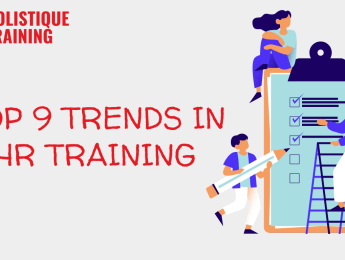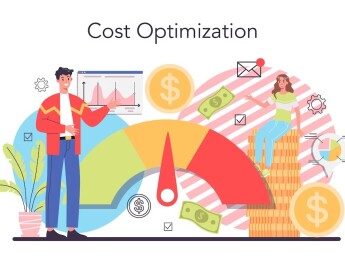Introduction
HR courses are educational programs designed to equip individuals with the skills and knowledge required to effectively manage and support the workforce of an organization. These courses cover a wide range of topics, from basic HR principles to advanced strategic management. The role of HR in modern businesses is critical, as HR professionals are responsible for recruiting, training, and retaining employees, ensuring compliance with labor laws, and fostering a positive workplace culture. The importance of HR courses is underscored by the growing demand for skilled HR professionals, as businesses increasingly recognize that their employees are their most valuable asset. Managing this asset effectively can lead to improved productivity, innovation, and overall business success, making HR courses essential for anyone looking to pursue or advance a career in human resources.
What Are HR Courses and Why Are They Important?
Understanding the Role of HR in Modern Businesses
Human Resources (HR) courses are educational programs designed to equip individuals with the skills and knowledge required to effectively manage and support the workforce of an organization. These courses cover a wide range of topics, from basic HR principles to advanced strategic management. The role of HR in modern businesses is critical, as HR professionals are responsible for recruiting, training, and retaining employees, ensuring compliance with labor laws, and fostering a positive workplace culture.
The Growing Demand for Skilled HR Professionals
The importance of HR courses is underscored by the growing demand for skilled HR professionals. As businesses become more complex and globalized, the need for effective human resource management has never been greater. Companies are increasingly recognizing that their employees are their most valuable asset, and managing this asset effectively can lead to improved productivity, innovation, and overall business success.
Key Benefits of HR Courses
- Enhanced Professional Skills: HR courses provide participants with a comprehensive understanding of various HR functions, including recruitment, employee relations, performance management, and compensation. These skills are essential for anyone looking to excel in an HR role.
- Career Advancement Opportunities: Completing HR courses can significantly boost your career prospects. Many employers prefer or require candidates to have formal HR education, and certifications from recognized institutions can open doors to higher-level positions and increased responsibilities.
- Up-to-Date Knowledge: The field of HR is constantly evolving, with new laws, technologies, and best practices emerging regularly. HR courses help professionals stay current with the latest developments, ensuring that they can implement the most effective strategies in their organizations.
- Networking: Enrolling in HR courses often provides opportunities to network with other HR professionals, instructors, and industry experts. These connections can be valuable for career growth, mentorship, and staying informed about industry trends.
HR courses are essential for anyone looking to pursue or advance a career in human resources. They provide the necessary skills and knowledge to manage an organization’s workforce effectively, contribute to strategic business goals, and stay competitive in a rapidly changing business environment. By investing in HR education, professionals can enhance their capabilities, increase their career opportunities, and play a pivotal role in the success of their organizations.
What Are the Key Topics Covered in HR Courses?
Recruitment and Selection
This topic covers the entire recruitment process, from identifying staffing needs to onboarding new employees. Key elements include:
- Job Analysis and Design: Understanding the requirements and responsibilities of roles.
- Sourcing Candidates: Methods for attracting qualified candidates, including job postings, recruitment agencies, and headhunting.
- Selection Methods: Various techniques such as interviews, psychometric testing, and assessment centers to evaluate candidates.
- Onboarding: Strategies for integrating new employees into the organization effectively.
Employee Relations and Engagement
Focusing on maintaining a positive work environment and fostering employee satisfaction, this topic includes:
- Labor Relations: Understanding the legal and practical aspects of managing relationships with trade unions and employee representatives.
- Conflict Resolution: Techniques for resolving workplace disputes and maintaining harmonious relationships.
- Employee Engagement: Strategies for increasing employee motivation, commitment, and productivity.
- Communication: Best practices for effective internal communication within an organization.
Performance Management
Courses on this topic teach how to evaluate and improve employee performance, including:
- Setting Objectives: Establishing clear, measurable goals for employees.
- Appraisal Systems: Designing and implementing performance appraisal methods, such as 360-degree feedback and management by objectives.
- Feedback and Coaching: Techniques for providing constructive feedback and coaching employees for performance improvement.
- Performance Improvement Plans: Developing and managing plans to address performance issues.
HR Strategy and Policy Development
This area focuses on aligning HR practices with business objectives and developing comprehensive HR policies:
- Strategic HR Management: Integrating HR strategies with overall business strategy to drive organizational success.
- Policy Development: Creating and implementing HR policies that comply with legal requirements and support business goals.
- Change Management: Managing organizational change and helping employees adapt to new processes and structures.
- Workforce Planning: Forecasting future HR needs and developing strategies to meet those needs.
Legal Aspects of HR
Understanding and complying with employment laws is crucial for HR professionals. Key topics include:
- Employment Law: Overview of UK employment law, including contracts, termination, and employee rights.
- Health and Safety: Ensuring workplace compliance with health and safety regulations.
- Equality and Diversity: Promoting and managing diversity in the workplace and ensuring compliance with equality legislation.
- Data Protection: Understanding the implications of data protection laws for managing employee information.
Compensation and Benefits
This topic covers the design and management of employee compensation and benefits programs:
- Pay Structures: Developing fair and competitive pay structures.
- Incentive Programs: Creating performance-based incentives to motivate employees.
- Benefits Administration: Managing employee benefits such as pensions, health insurance, and leave policies.
- Job Evaluation: Assessing the relative value of jobs within the organization to determine appropriate compensation levels.
Training and Development
Courses on this topic focus on enhancing employee skills and career development:
- Training Needs Analysis: Identifying gaps in employee skills and determining training requirements.
- Program Design and Delivery: Creating effective training programs and delivering them through various methods, such as workshops and e-learning.
- Career Development: Supporting employees in their career progression through mentoring, coaching, and development opportunities.
- Evaluation of Training: Measuring the effectiveness of training programs and making improvements.
HR Analytics
This emerging field involves using data to drive HR decision-making:
- Data Collection and Analysis: Techniques for gathering and analyzing HR data.
- HR Metrics: Key performance indicators ( KPIs ) and metrics used to assess HR functions.
- Predictive Analytics: Using data to forecast future trends and outcomes in HR, such as employee turnover and recruitment needs.
- Reporting and Visualization: Creating reports and visualizations to communicate HR insights to stakeholders.
HR courses in the UK cover a comprehensive range of topics designed to equip professionals with the knowledge and skills needed to manage human resources effectively. From recruitment and selection to HR analytics, these courses address all critical aspects of HR management, ensuring that practitioners can contribute strategically to their organizations.
How Do You Choose the Right HR Course for You?
Choosing the right HR course can be a pivotal decision in your professional development. Here are some key considerations to help you make an informed choice:
Assessing Your Career Goals and Current Skills
- Identify Your Career Objectives: Consider where you want to be in your HR career in the next 5-10 years. Are you aiming for a generalist role, a specialist position, or a senior management role?
- Evaluate Your Current Skills: Assess your existing HR knowledge and skills. Identify any gaps that need to be filled to achieve your career goals. This will help you determine whether you need a beginner, intermediate, or advanced course.
Comparing Course Content and Providers
- Course Content: Review the syllabus of potential courses. Ensure the topics covered align with your career needs. For example, if you're interested in HR analytics, make sure the course includes this subject.
- Course Format: Decide whether you prefer online or in-person learning. Online courses offer flexibility, while in-person courses may provide better networking opportunities and hands-on learning.
- Reputation of Providers: Research the reputation of the course providers. Look for reviews, alumni testimonials, and industry recognition. Well-regarded institutions like the CIPD, universities, and established training companies are usually reliable choices.
Considering Accreditation and Reputation
- Accreditation: Check if the course is accredited by recognized bodies such as the CIPD, SHRM, or HRCI. Accreditation ensures the course meets industry standards and is recognized by employers.
- Industry Recognition: Some courses are more widely recognized within certain sectors or regions. Choose a course that is well-regarded in your target industry or geographic area.
Balancing Cost and Funding Options
- Tuition Fees: Consider your budget. Course fees can vary significantly, from a few hundred to several thousand pounds. Ensure you understand the total cost, including any additional fees for materials or exams.
- Funding Options: Explore scholarships, grants, and employer sponsorships. Some employers may cover the cost of professional development courses. Additionally, there may be government or industry-specific grants available.
Duration and Time Commitment
- Course Length: Assess how much time you can realistically commit to studying. Courses range from short-term workshops to multi-year degree programs. Ensure the course duration fits with your personal and professional commitments.
- Study Load: Consider the study load and how it fits with your work-life balance. Part-time courses might be suitable if you are working full-time, whereas full-time courses could be an option if you can dedicate more time to your studies.
Networking and Professional Growth Opportunities
- Alumni Network: Investigate the networking opportunities provided by the course. A strong alumni network can be invaluable for career growth and job opportunities.
- Professional Development: Look for courses that offer additional benefits such as internships, mentorship programs, or memberships in professional HR associations.
Personal Learning Preferences
- Learning Style: Reflect on your preferred learning style. Do you learn better through lectures, practical exercises, or group discussions? Choose a course format that aligns with your learning preferences.
- Support Services: Check if the course provider offers support services such as career counseling, academic advising, and technical support for online courses.
Table 1: HR Course Selection Guide
Consideration | Description |
Assessing Your Career Goals and Current Skills | Identify your career objectives and evaluate your current HR knowledge and skills to determine the level of course (beginner, intermediate, or advanced) that suits your needs. |
Comparing Course Content and Providers | Review the syllabus of potential courses to ensure they align with your career needs. Consider the course format (online or in-person) and research the reputation of providers. |
Considering Accreditation and Reputation | Check if the course is accredited by recognized bodies such as CIPD, SHRM, or HRCI. Look for industry recognition and reputation among professionals and employers. |
Balancing Cost and Funding Options | Consider tuition fees and explore funding options like scholarships, grants, or employer sponsorships. Understand the total cost and any additional fees involved. |
Duration and Time Commitment | Assess the course length and study load to ensure it fits with your personal and professional commitments. Choose between part-time or full-time courses based on your schedule. |
Networking and Professional Growth Opportunities | Investigate the networking opportunities and additional benefits offered by the course, such as alumni networks, internships, mentorship programs, or professional memberships. |
Personal Learning Preferences | Reflect on your preferred learning style and choose a course format that aligns with it. Consider support services like career counseling and technical support for online courses. |
Choosing the right HR course involves a thorough evaluation of your career goals, current skills, course content, accreditation, cost, time commitment, and personal learning preferences. By carefully considering these factors, you can select a course that will effectively enhance your skills, advance your career, and meet your professional aspirations.
How Do You Stay Updated in the Field of HR?
Staying updated in the field of Human Resources (HR) is crucial for maintaining your professional edge and ensuring that you are aware of the latest trends, laws, and best practices. Here are several strategies to keep yourself current in the dynamic field of HR:
Continuing Professional Development (CPD)
- Enroll in CPD Programs: Many professional bodies, such as the Chartered Institute of Personnel and Development (CIPD), offer CPD programs that help HR professionals stay updated with the latest developments.
- Certifications and Advanced Courses: Regularly update your qualifications by pursuing additional certifications or advanced HR courses. This not only keeps your knowledge current but also demonstrates your commitment to professional growth.
Attending Workshops and Seminars
- Industry Conferences and Seminars: Attend HR conferences, workshops, and seminars such as the CIPD Annual Conference or the SHRM Annual Conference. These events provide insights into emerging trends and networking opportunities with industry leaders.
- Webinars: Participate in online webinars hosted by HR organizations, universities, and professional bodies. Webinars are a convenient way to learn about the latest research, tools, and practices from the comfort of your office or home.
Joining Professional HR Networks and Associations
- HR Associations: Join professional HR associations like CIPD, SHRM, or the HR Certification Institute (HRCI). These organizations often provide members with exclusive access to resources, events, and professional networks.
- Online HR Communities: Engage in online forums and communities such as LinkedIn groups, Reddit’s HR community, or specific HR-focused platforms. These platforms allow you to share knowledge, ask questions, and stay informed about industry news.
Subscribing to HR Publications and Resources
- HR Journals and Magazines: Subscribe to reputable HR journals and magazines such as HR Magazine, People Management, and Workforce. These publications offer in-depth articles, case studies, and research on current HR topics.
- Newsletters: Sign up for newsletters from leading HR websites and organizations. Newsletters can provide regular updates on the latest HR news, trends, and events directly to your inbox.
Leveraging Technology and Social Media
- HR Blogs and Websites: Follow influential HR blogs and websites such as HR Daily Advisor, TLNT, and the CIPD blog. These sources often provide timely insights and practical advice.
- Social Media: Use platforms like LinkedIn, Twitter, and Facebook to follow HR thought leaders, organizations, and hashtags. Social media can be a valuable source of real-time information and professional connections.
Engaging in Research and Reading
- Books: Read books by renowned HR experts to deepen your understanding of specific HR topics. Books often provide comprehensive analyses and long-term perspectives.
- Research Papers: Keep up with academic research by accessing journals and papers from sources like the Academy of Management Journal, Human Resource Management Journal, and others.
Participating in Peer Learning and Mentorship
- Peer Groups: Join or form peer learning groups with other HR professionals. Regular discussions and knowledge sharing can help you stay updated and gain different perspectives.
- Mentorship: Seek out mentors in the HR field who can provide guidance, share their experiences, and help you navigate your career path.
Utilizing HR Software and Tools
- HR Software Providers: Stay updated on the latest HR software and tools by following updates from leading HR technology providers like Workday, SAP SuccessFactors, and BambooHR. Understanding new tools can help improve your HR processes and efficiency.
- Product Demos and Free Trials: Participate in product demos and use free trials to explore new HR tools and technologies that can benefit your organization.
Staying updated in the field of HR requires a proactive approach to continuous learning and engagement with the broader HR community. By participating in professional development programs, attending industry events, joining professional networks, subscribing to relevant publications, leveraging technology, engaging in research, and utilizing modern HR tools, you can ensure that your knowledge and skills remain current and relevant. This will not only enhance your professional capabilities but also enable you to contribute effectively to your organization’s success.
What Does the Future Hold for HR Professionals in the UK?
The future of HR in the UK is set to be shaped by several significant trends and developments. HR professionals will need to adapt to these changes to remain effective and relevant in their roles. Here are some key areas that are likely to define the future landscape of HR in the UK:
Emerging Trends in Human Resources
- Digital Transformation and HR Technology:
- HR Automation: Routine HR tasks, such as payroll processing, attendance tracking, and employee records management, are increasingly being automated. This allows HR professionals to focus on strategic activities.
- Artificial Intelligence (AI): AI is being used to enhance recruitment processes, improve employee engagement, and provide data-driven insights for decision-making. AI tools can help in screening resumes, conducting initial interviews, and analyzing employee sentiment.
- HR Analytics: Advanced analytics and big data are becoming integral to HR practices. Predictive analytics can forecast employee turnover, identify high-potential employees, and optimize workforce planning.
- Flexible Working Arrangements:
- Remote and Hybrid Work: The COVID-19 pandemic accelerated the adoption of remote work, and many organizations are now adopting hybrid models. HR professionals will need to manage remote teams effectively, ensuring productivity and engagement.
- Work-Life Balance: Flexible working hours and policies supporting work-life balance are becoming more important. HR will play a key role in developing and implementing these policies.
- Focus on Employee Well-being:
- Mental Health Support: There is a growing emphasis on mental health in the workplace. HR will need to implement programs and initiatives that support employee mental health and well-being.
- Comprehensive Benefits: Offering a range of benefits that cater to the diverse needs of employees, such as wellness programs, childcare support, and financial planning services, will be crucial.
- Diversity, Equity, and Inclusion (DEI):
- Inclusive Workplaces: Building and nurturing inclusive workplaces where diversity is celebrated and all employees feel valued will be a major focus. HR will need to drive DEI initiatives and ensure they are embedded in the company culture.
- Bias Reduction: Implementing strategies to reduce bias in recruitment, promotion, and everyday workplace interactions will be essential.
The Impact of Technology on HR Practices
- HR Information Systems (HRIS): Advanced HRIS platforms are streamlining HR processes, from recruitment to performance management . These systems provide real-time data and analytics, aiding in better decision-making.
- Virtual Reality (VR) and Augmented Reality (AR): VR and AR are being explored for training and development purposes, offering immersive learning experiences.
- Blockchain: Blockchain technology has the potential to revolutionize HR by ensuring secure, transparent record-keeping for credentials and employment history.
Preparing for Future Challenges in the Workplace
- Skills Development and Lifelong Learning:
- Reskilling and Upskilling: With the rapid pace of technological change, continuous learning and development will be crucial. HR professionals will need to create programs that help employees acquire new skills and advance their careers.
- Learning Management Systems (LMS): Utilizing LMS to provide accessible and personalized learning experiences will be important for employee development.
- Agile HR:
- Agile Practices: Adopting agile methodologies in HR can help organizations respond quickly to changes and improve efficiency. Agile HR involves iterative planning, flexible responses to feedback, and cross-functional collaboration.
- Change Management: HR will play a pivotal role in managing organizational change, ensuring smooth transitions and minimizing disruptions.
- Employee Engagement and Retention:
- Personalized Employee Experience: Creating a personalized employee experience, from onboarding to career development, can enhance engagement and retention. HR professionals will need to leverage data and technology to tailor experiences to individual needs.
- Recognition and Rewards: Implementing effective recognition and reward systems that align with employee motivations and organizational goals will be key to retaining talent.
The future of HR in the UK will be marked by technological advancements, evolving work models, and a stronger focus on employee well-being and DEI. HR professionals will need to stay abreast of these trends and develop the skills necessary to navigate the changing landscape. By embracing digital transformation, fostering inclusive workplaces, supporting continuous learning, and adopting agile practices, HR can play a strategic role in driving organizational success and ensuring a positive employee experience.
Conclusion
In conclusion, HR courses serve as indispensable pathways for professionals seeking to navigate the intricate realm of workforce management. As the business landscape evolves in complexity and global reach, the demand for adept HR practitioners only intensifies. These educational programs not only enrich skill sets but also serve as catalysts for career progression, ensuring individuals remain abreast of the latest industry trends and regulatory shifts. By embracing HR education, professionals can actively contribute to organizational success, cultivate thriving workplace environments, and adeptly steer through the ever-changing dynamics of human resources. In essence, investing in HR courses is a strategic imperative for those aspiring to excel in the pivotal domain of human capital management.


























